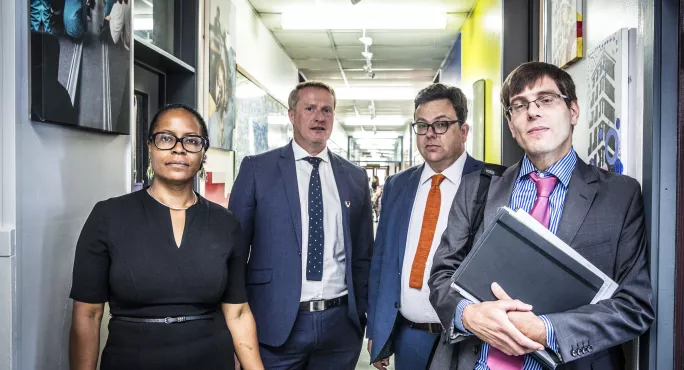You can see the Blue Planet effect today on every high street, coffee shop and supermarket in the UK.
This time last year, a primetime BBC tv series single-handedly changed this country’s attitude to the use of plastics by exposing their devastating impact on our oceans.
Now, 12 months on could School be about to do the same for England’s education funding crisis? The problem of squeezed school budgets can hardly be described as hidden, having featured as a major issue in the last general election.
But its failure to really cut through to where it really matters can be evidenced by the chancellor Philip Hammond’s tone-deaf decision to talk about handing out schools “little extras” in last month’s budget. Our leaders, it seems, still don’t get it.
School could help, if the first episode and tonight’s second instalment are anything to go by. Last week, the nation’s viewers were shown the reality of what Mr Hammond’s decisions mean in schools - how hardworking, dedicated teachers are being expected to take large pay cuts so that their academy can make ends meet.
Tonight viewers will see the focus broaden out as another secondary, in the same South Gloucestershire multi-academy trust, battles with low attendance, poor behaviour and a “special measures” verdict from Ofsted.
We see older pupils at Marlwood School - frustrated by their younger peers’ behaviour - call for the return of the cane, a £100 prize for good attendance, a filmed fight, obscene graffiti and awkward conversations with parents.
There is excruciating footage of James Pope - a head who clearly knows his job is on the line - digesting a fall in pupil numbers in front of his academy trust chief executive.
The reality of the pressure of Ofsted and his school’s threatened downward spiral are all too evident on his flushed face. Discipline and truancy are part of Marlwood’s struggle. But, once again, it all seems to come back to money - or, rather, the lack of it.
The head offers the following bleak assessment of what “special measures” means: “There is no extra money, there is no extra resources, there is no extra personnel, because that just doesn’t exist in our public services at the moment.”
And faced with the possibility of having to permanently exclude the disruptive but apparently popular Year 11 pupil Henry, Mr Pope reflects: “If more support had been available at an earlier stage then he wouldn’t necessarily have behaved the way he behaved over the course of the last five years.
“Schools have been managing those behaviours with money which has enabled them to recruit learning mentors, behaviour mentors, mental health counsellors. All of those things are going or have gone.
“Is some of the changes that we are seeing in behaviour at Marlwood over the course of the last six or seven weeks a consequence of not having those things in place?
“You can’t keep having every single issue presented to society [and say] ‘how can we address that in schools?’ if you don’t then fund schools to address it.”
Those realities may be all too familiar to many Tes readers at the centre of today’s school funding crisis, but they will be news to many viewers switching on their TVs tonight.
The stated aim of School is to ask: “In an education system under the greatest financial pressure for a generation, how much should we expect from our teachers?”
Tonight second’s episode clearly delivers on that front. The question is, will it be enough to persuade our government to start listening?
*The second episode of School airs tonight on BBC2 at 9pm




